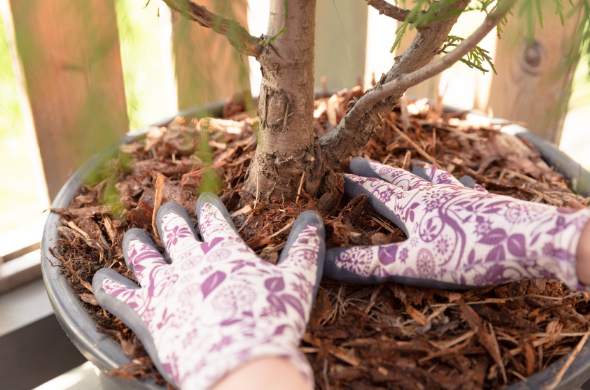How to Keep Your Plants Warm During Winter
•Posted on December 10 2021

During the winter months, your plants can face life-threatening challenges. Due to shorter days, lower temperatures, and cold air, it can be challenging for plants to thrive.
That said, keeping them warm can be difficult. If you're wondering what you can do to keep your winter vegetables or plants warm during this cold season, you'll find this quick guide helpful.
Read on for more insights.
Increase Your Home's Humidity

Low humidity during the winter is a problem for both humans and plants. The ideal humidity level for plants is approximately 50-60%, meaning you'll need to keep your humidifier operational.
If you don't have a humidifier or the budget to purchase one, find your home's most humid rooms and cluster your plants there.
Use a Space Heater

A space heater can be one of the most effective ways to warm overwintering plants.
While it is helpful for your winter flowers and plants, the price tag can be hefty.
Depending on your needs, you may also need to purchase more than one space heater.
There are different types of space heaters available in the market today, including:
- Infrared
- Ceramic
- Portable
- Oil-filled radiant
- Conventional fuel-based
- Electric
The above space heaters come with pros and cons. Evaluate your needs and purchase one that can work for you with minimal glitches.
Cover Your Plants

Covering your plants with a drop cloth or old blanket can help during the cold months.
When protecting your plants, spread it out carefully and ensure it doesn't touch any of the branches or leaves of the plant.
Doing this ensures that your plants won't get damaged. Covering with a cloth or blanket works best when protecting your plants from frost because it doesn't increase temperature that much.
During the day, uncover to allow them to get optimal air and light.
Adjust Your Watering Routine

Sure, winter air is drier, but the growth rate of plants reduces during the colder months, and some can even become dormant.
Most plants, especially indoor ones, indeed require less water during the colder months. You want to avoid overwatering because it can cause roots to rot.
When watering houseplants, do not use cold water. Instead, use room temperature water not to shock the roots.
During winter, tap water can become very cold, so be sure to check before watering your plants.
Insulate Your Plants Using Mulch

To insulate your plants, you can apply much or hay. This helps to hold moisture and heat and protects the plants' roots.
You can also offer more protection from cold by placing jugs full of warm water in the mulch.
Invest in a Ready-Made Green House or Build a Cold Frame
You can house your plants using a ready-made greenhouse or build a cold frame and protect your overwintering plants from extreme cold.
This can be a wise investment as it retains heat and keeps frost out, improving your plants' survival during the colder months.
Keep Your Plants Healthy
If keeping your plants warm during winter has been a challenge to you, the above-outlined tips can help.
Remember that maintaining your plants doesn't only boil to keeping them warm during winter.
You also need to use invest in proper fertilizers. Anyone with home plants needs to purchase one according to their requirements.
You can shop ours below!
Related Posts:
- How to Nourish Your Soil in the Winter
- How to Easily Combat Joint Pain in the Winter
- 9 Plants for Your Indoor Garden This Winter
Comments
0 Comments
Leave a Comment